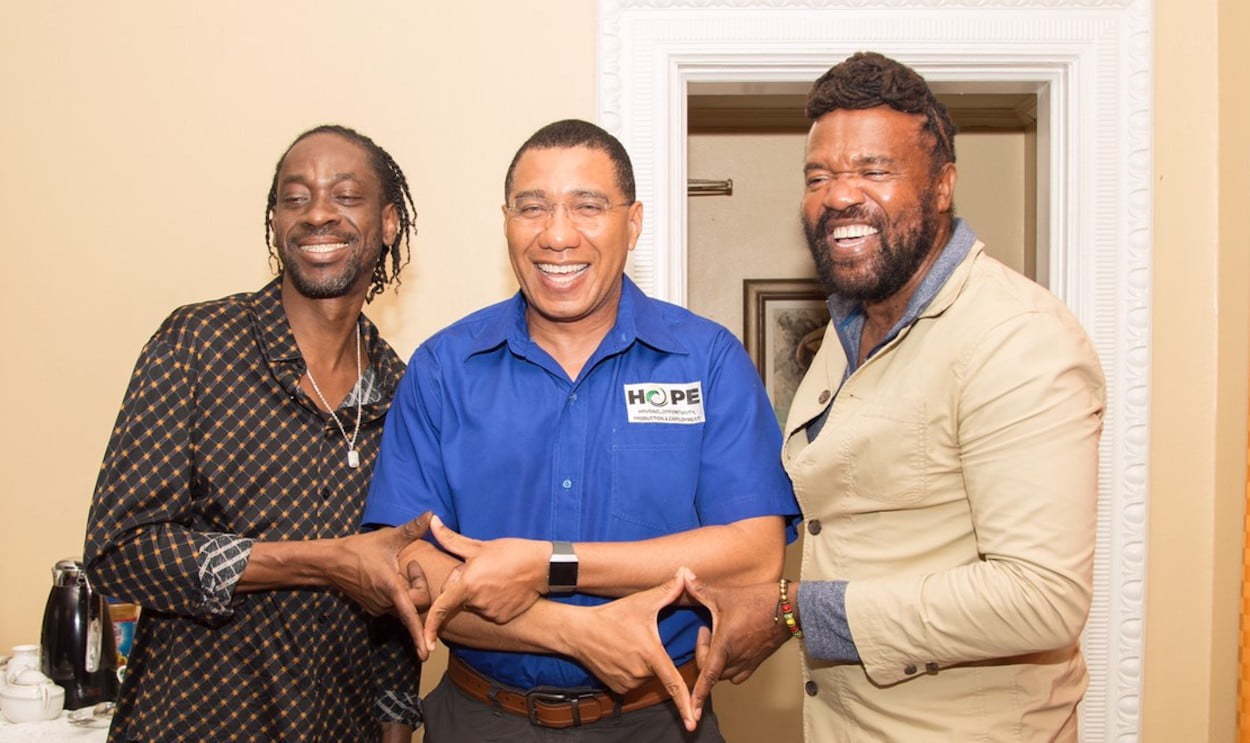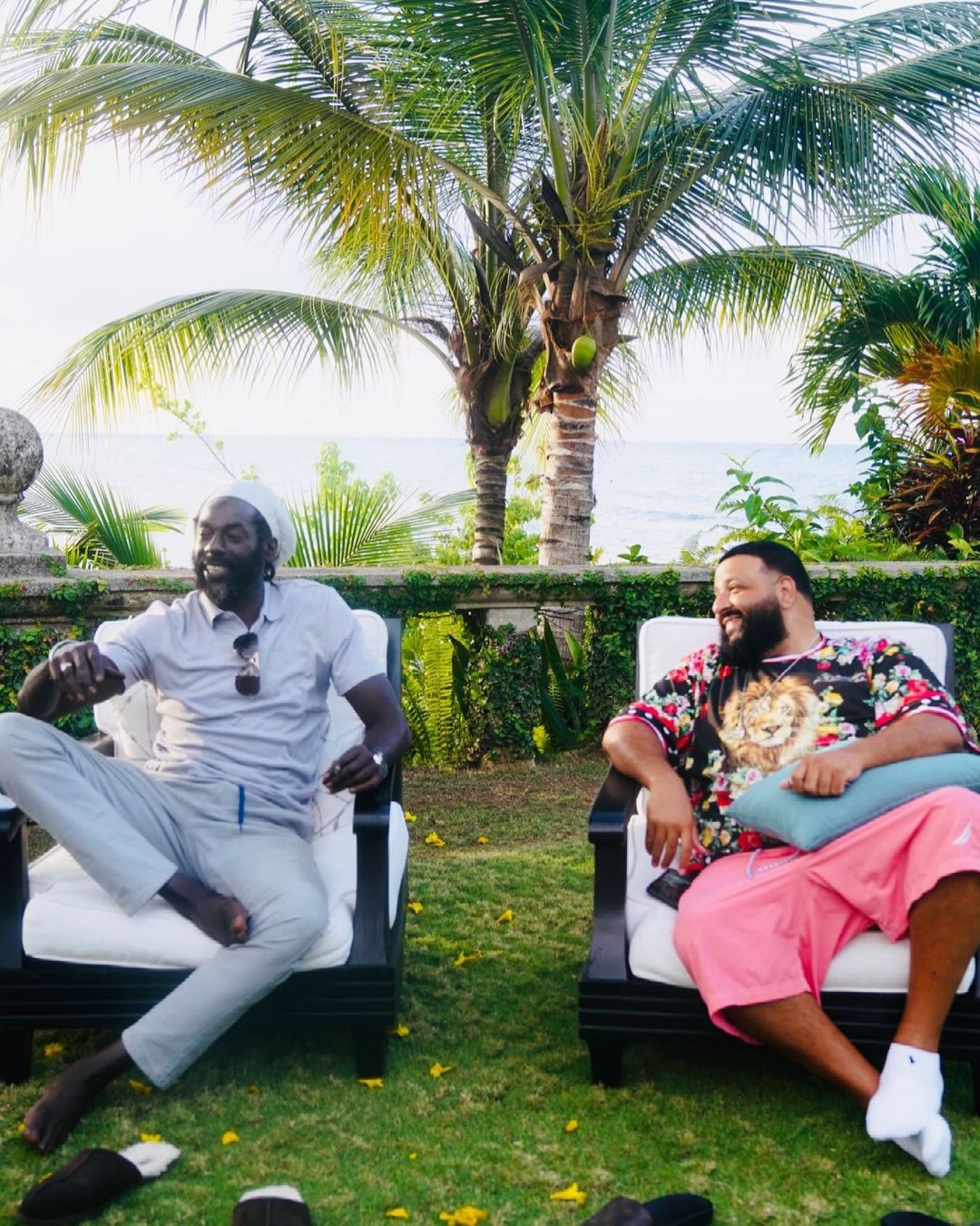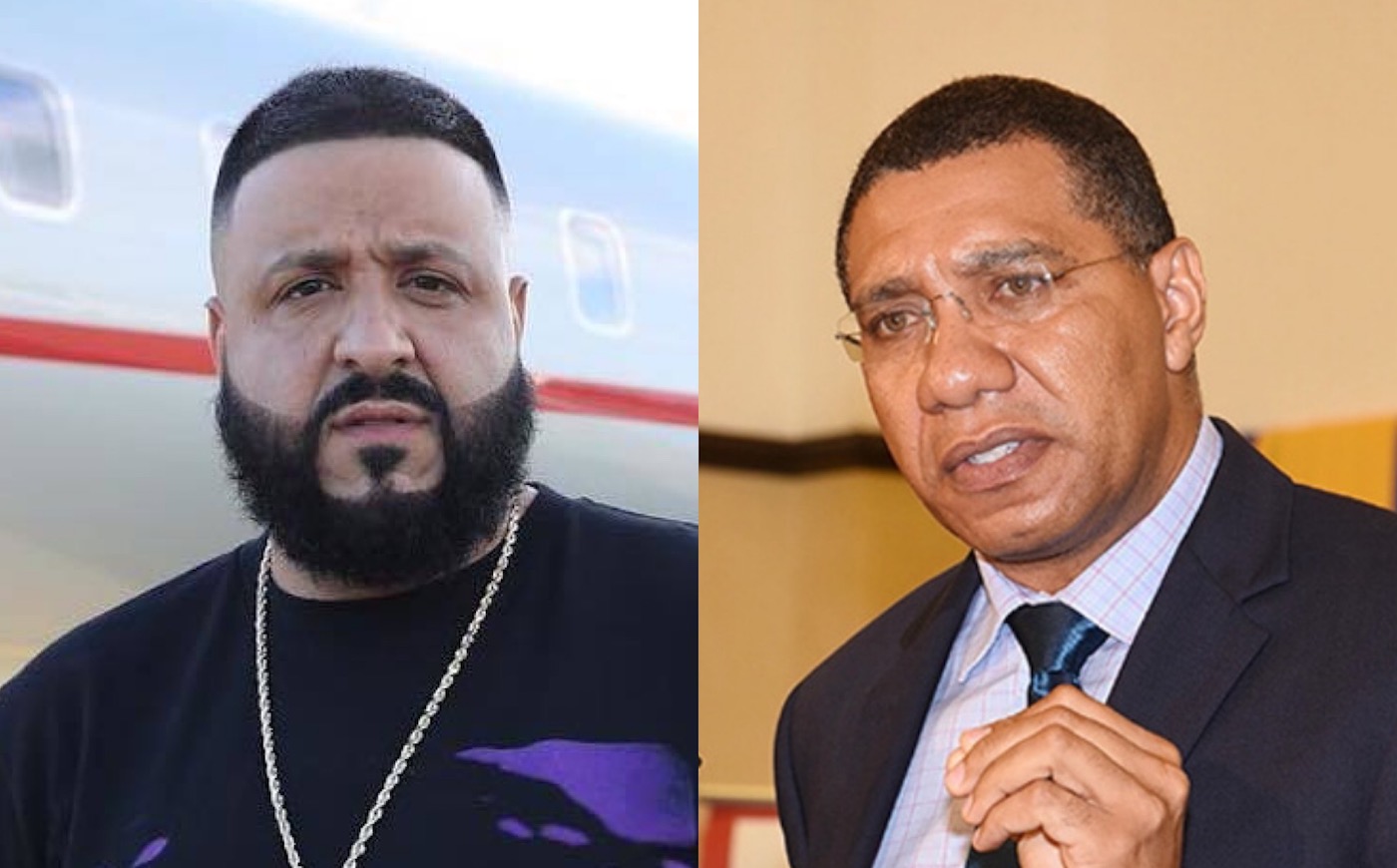The Jamaican Prime Minister says dancehall is being hijacked amid DJ Khaled’s recent trip to the island.
The topic of dancehall has been a prevalent one in the local parliament recently. After recent discussions about the genre being a huge contributor to the high crime rate in Jamaica, Prime Minister Andrew Holness now says dancehall is being hijacked by foreigners. According to the PM, “the people who are carrying the music not seeing the economic value in the music,” so others are taking it and making more money off it.
Some are questioning whether the country leader is attempting to not just use dancehall as a scapegoat but also a distraction to overshadow the other major issues that the country is currently facing. While it is true that dancehall is perhaps one of the most sampled genres in international music, and international artists definitely profit more from dancehall than local artists do, to place that blame on Jamaican artists is a gross oversight.
For years, Jamaican artists have been pointing out the fact that dancehall is not valued locally as much as it is in international markets. That has more to do with the fact that it is not streamlined in Jamaica, and no structure has been created to generate much revenue from the music, which has historically been neglected by industry leaders. While government ministers in entertainment sectors promote local events for tourism and lobby for our artists to headline, they fail to fortify an industry where artists must copyright and release their work under a certain framework that is economically beneficial.

Moreover, the fact that members of parliament have long seen dancehall as a negative art form with less value than it actually has outweighed the cries of many artists who have been championing for more support. This and other factors make it rather ironic that the PM is now saying our artists are “not seeing the economic value” in the music when it is, in fact, those artists who have been arguing the same about the government for years while they have undermined that same value.
Is DJ Khaled ‘hijacking’ dancehall?
Mr. Holness’s claim that dancehall is being hijacked comes shortly after DJ Khaled visited the island and worked with a number of Jamaican artists for his upcoming album. Fans and industry players cannot help but strike a correlation between the two, and it is rather unfortunate that such a famous and successful musician who often celebrates and advocates for dancehall and Jamaica may have inspired such an argument. Of course, artists abroad will make more money from their music, whether it’s pop, hip-hop, dancehall, reggae, or any other genre simply because they have structure and a foundation that offers them the opportunity to do so.
Those international artists never created that foundation themselves; there is legislation, institutions, and committees in place that ensure the music industry upholds a certain standard and things are done a certain way. Is it the fault of Jamaican artists that their country hasn’t afforded them similar opportunities of structure? Are they expected to forge the necessary institutions, support, and laws necessary themselves in order to present Jamaica as a more serious player in the music industry?

Fans are questioning what the PM’s agenda is here as he is now echoing the cries of dancehall artists that have spanned years only to undermine how valuable they find the genre to be. “Think a di same anju did say a dancehall music a increase crime rate……now him a talk bout economic value,” one fan wrote. “The GOVERNMENT not seeing the value,” another defended.
“Anju stop it we all know a unuh cause it,” one argued. “From the days of glorifying soca and bashing dancehall when it inna bamboo and zinc up fence, if outsiders never a show so much interest u and nuff a u uptown ppl would still be bashing it.” This fan poses a rather interesting point. Where was the government’s solidarity when it was local artists who were making the same point? Now that dancehall has become one of the most influential sounds in the world, and countries with a more streamlined music industry are profiting from it, the government suddenly recognizes the “economic value” that they have downplayed for so long.
There is something to be said about the fact that the PM often focuses more on the dancehall songs that promote negative behaviors rather than the ones that are not just more positive but also more marketable and inspirational. If it was a case where the value could not be seen in the war tracks and “gun songs,” more effort could have still been made and can still be made to support the ones devoid of that theme, the ones that could easily stand up in the company of other edited international songs of “economic value.”
The question is, whose fault is it that international artists make more money off of dancehall than Jamaican artists do?
